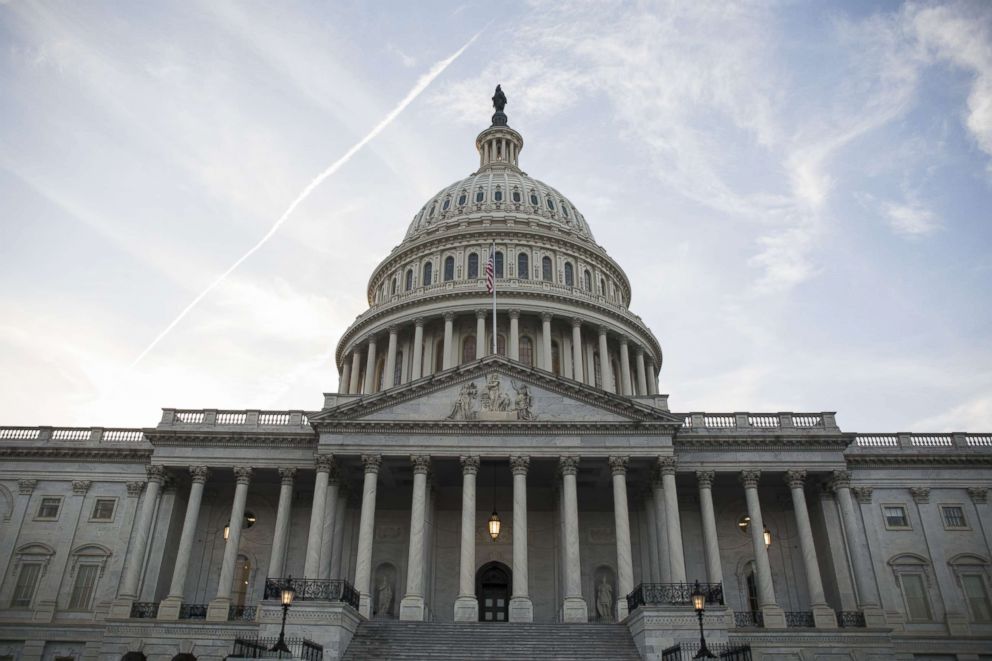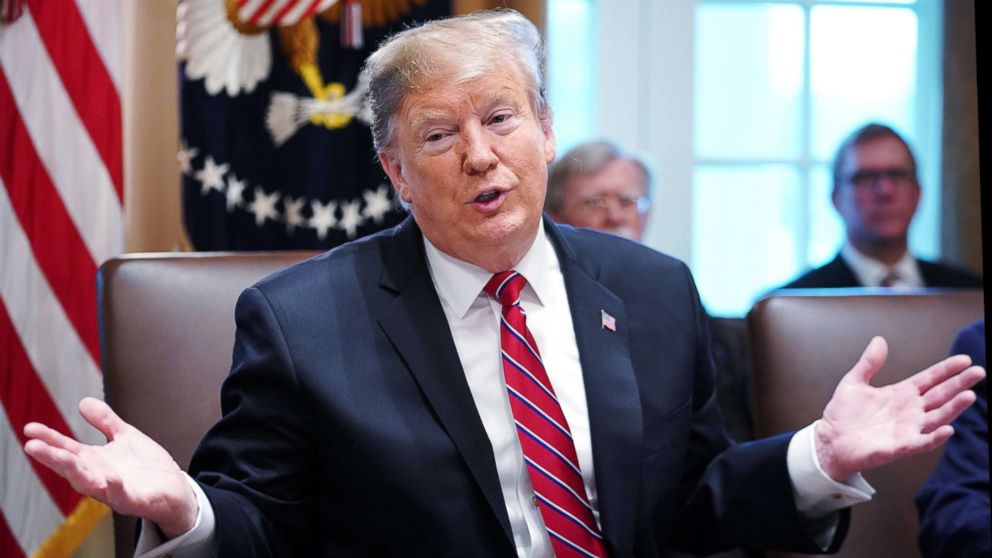In pursuit of Trump's tax returns, Democrats face legal, political hurdles
As House Democrats take their first steps toward obtaining President Donald Trump’s personal tax returns, experts warn of the political and legal costs of a potential “fishing expedition.”
Trump is the first U.S. president not to release his tax returns in modern memory, bucking nearly four decades of precedent. He has justified his refusal by repeatedly claiming that his taxes are under “continuous audit,” an assertion the IRS will not confirm or deny. There is no rule barring the release of one’s returns during an audit, but in November, Trump said that he would keep “an open mind” to turning them over once the audit is done.
Democratic leaders have argued that the filings could produce a road map for investigations into Trump's global business empire and shed light on his wealth, debt, charitable giving and the potential conflicts of interests associated with them. To this end, a Democrat-controlled House committee last week heard expert testimony about legislative proposals and laws that could help them acquire the president’s tax returns.
Legal experts say the law is largely on their side.
Through an obscure 1924 provision in the tax code, the Treasury Secretary “shall furnish” any individuals’ tax return information “upon written request” from the chairmen of certain congressional committees. Once provided, the tax information can only be reviewed in a closed session by certain members unless lawmakers vote to make it public.
The scarcely-used measure dates back to the 1920s Teapot Dome bribery scandal of President Warren Harding’s administration, which landed the Interior Secretary in prison for accepting bribes by oil companies for low rate leases of public lands. It was invoked in the 1970s to investigate alleged tax fraud by President Richard Nixon and again in 2014 by congressional Republicans to investigate whether the IRS discriminated against certain conservative groups, a move Democrats criticized at the time as an effort to undermine the IRS. In 2017, the Justice Department settled with some of these groups after they sued the federal government over the controversy.
But Congress’ right to demand personal tax returns is not unfettered, legal experts told ABC News.
“Congress must have a legitimate legislative reason for accessing the returns,” Keith Whittington, a professor of politics at Princeton University, told ABC News. Whittington predicted that Congress could identify valid reasons to examine a sitting president’s tax returns, but obtaining Trump’s tax returns from his years as a private citizen “might be a little more complicated.”

Also, “there is no obvious presidential privacy privilege,” said Peter Shane, an expert on separation of powers law at Ohio State University’s Moritz College of Law, adding that since every other recent president has released his returns, “it seems impossible to argue that such a disclosure disables a president from exercising his constitutional functions.”
Shane said that reviewing alleged emoluments – gifts from foreign governments -- or other potential conflicts of interest could be legitimate reasons for Congress to access a president’s tax returns. Trump has been sued by a group of Congressional Democrats, the Attorneys General of Washington, D.C. and Maryland and some New York businesses for allegedly accepting emoluments while in office. The president has called the lawsuits “without merit.”
But legal experts warned that overbroad requests for Trump’s personal tax filings could also backfire on Democrats and establish unwanted precedents.
“A fishing expedition into the president's taxes could open up politically motivated efforts to divulge others' taxes, at the price of privacy,” Harold Krent, Dean of the Chicago-Kent College of Law, told ABC News.
Krent suggested a narrower approach: “I would think that the House would be better off seeking particular returns as part of a larger investigation into the flow of Russian money, payments of hush money, etc., in order to cabin the precedent,” he said.
Andy Grewal, a law professor at the University of Iowa, is skeptical that a Congressional demand for Trump’s taxes would be proper because “there hasn’t been any evidence or allegation of wrongdoing in connection with the handling of Trump’s tax returns.”
Congressional Democrats have the “potential to shoot themselves badly in the foot,” Grewal said, pointing out that ninety percent of legislators don’t share their tax returns. Trump could use the same tax code provision to peek at their filings, he said.

Rudy Giuliani, a lawyer for Trump, has vowed to fight requests for the tax documents while the Treasury Department has signaled it would review the legality of a request, potentially prolonging the process via legal challenges.
Paul Rosenzweig, a former Whitewater investigator and senior fellow at the conservative think tank R Street Institute, said he believes Congress would ultimately prevail in a court battle over the returns, but the president “will attempt to play rope-a-dope and delay for as long as possible – most importantly, until after the elections in November 2020.”
Rep. Kevin Brady, R-Texas, the former Chairman of the House Committee on Ways and Means who chose not to pursue Trump's returns despite calls from the committee’s democrats to hold a vote, said GOP opposition is not necessarily over whether Trump should release his returns but more about "protecting the rights of every private taxpayer."
"Weaponizing the tax code for political purposes sets a dangerous precedent," Brady told reporters last week. "Because if Democrats or any party can abuse their power to rummage through the tax returns of the president, what will stop them from abusing that power in the future frankly to target any individual American that they see as a political enemy?"
Rep. Bill Pascrell, D-New Jersey, a member of the Ways and Means Committee who led more than a dozen unsuccessful efforts to seek Trump's returns when Republicans controlled the House, accused Republicans of hypocrisy for criticizing the obscure provision after invoking it in 2014.
“We asked them to join us for two years because it should have been a bipartisan thing. But they protected the president,” he said. “They have every right to do that but they’re going to look like fools when it’s all over.”
Rep. Richard Neal, D-Massachusetts, the current chairman of the House Ways and Means Committee, has not yet requested the president’s returns from the Treasury. But he is expected to hold additional hearings to continue to bolster Democrats’ public and legal case for obtaining them in anticipation of the anticipated legal challenge from the Trump administration.
"The other side of this is that litigation could prolong it,” Neal told ABC News last month. “So we’re methodically doing it the way we said we would.”
ABC News' John Parkinson contributed to this report.




